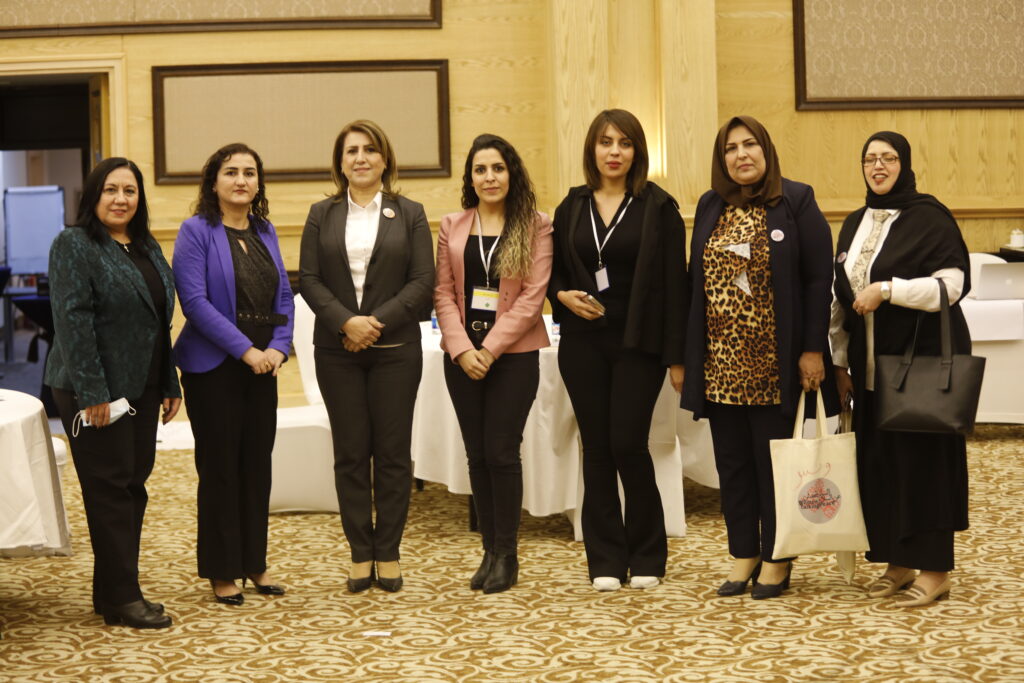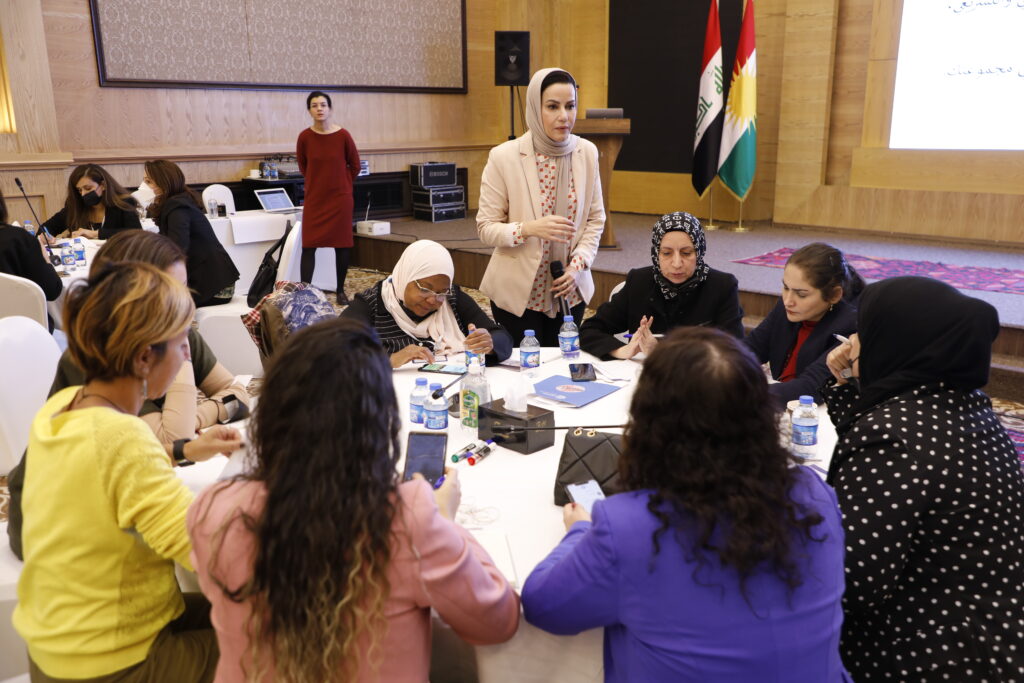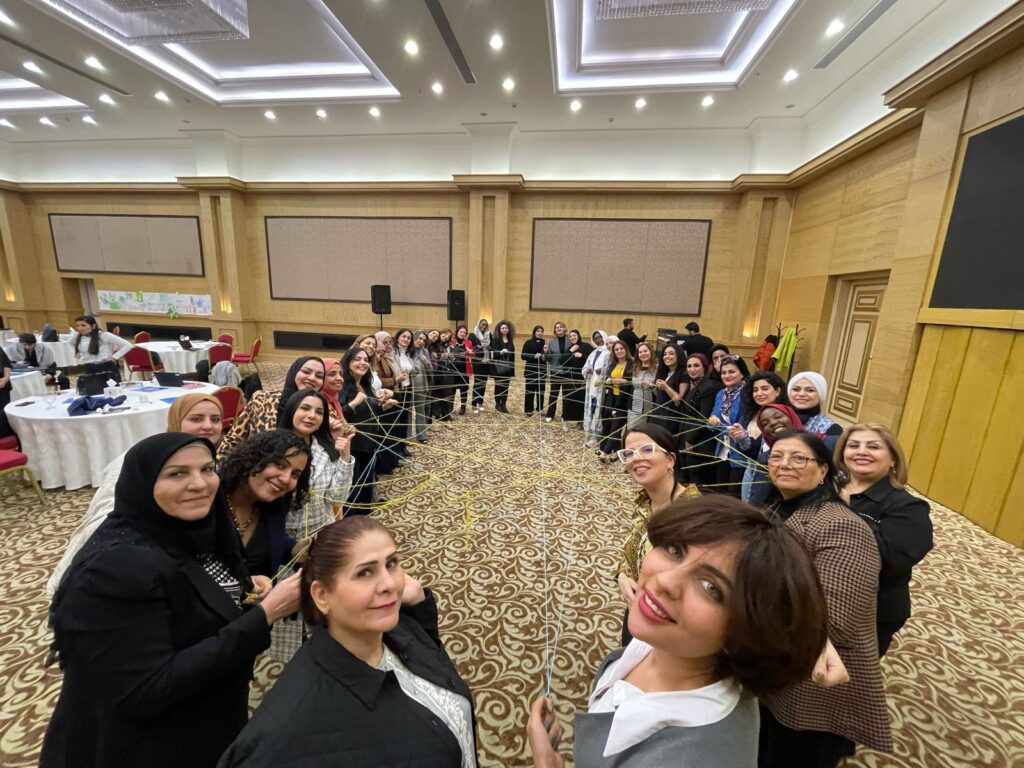From a Spark in Erbil to a Regional Movement: Women Leading on Climate, Peace, and Security in MENA
In 2021, elbarlament, through its Women Talking Peace project, held its first Regional Network Meeting on Women, Peace, and Security in Erbil, Iraq. The event brought together 50 women activists from across the MENA region—representing Iraq, Syria, Yemen, Morocco, Tunisia, Jordan, Lebanon, and Mauritania—to discuss key issues related to women and conflict, as well as best practices in peacebuilding. Among the most pressing concerns raised were the disproportionate effects of climate change on women and the critical need for stronger regional cooperation within the Women, Peace, and Security (WPS) agenda.
From this powerful gathering, a new initiative emerged. In 2022, nine women leaders—seven from Iraq, along with Shirn Jurdi from Lebanon and Duha Qadri from Jordan—founded the Environmental Justice Group (EJG). Their mission was clear: to place women’s voices at the forefront of the fight against climate change and to advocate for their active participation in decision-making processes. The EJG quickly connected with the Arab States Civil Society Organisations and Feminists Network (ASCOFN), sparking essential discussions about a coordinated Arab response to climate change and its intersection with the WPS agenda.
These efforts culminated in October 2022, when ASCOFN hosted a regional conference in Amman, Jordan, welcoming environmental activists from across MENA. Each delegation prepared a national report on the gendered impacts of climate change. The Iraqi report—meticulously researched and proofread by Batool Abdulameer, Eman Alamin, and Teeba Al Qaissi—was presented by Batool, highlighting the growing influence of young women in shaping climate discourse and the rising prominence of the EJG on both regional and international stages.
Momentum continued to build in January 2024, when the Women Talking Peace project convened its second regional networking meeting. This time, 44 participants explored the nexus of climate change and Women, Peace, and Security. At the heart of this gathering was the Environmental Justice Group, championing collaboration. One of the key outcomes was the creation of the Feminist Task Force (FTF)—a regional platform envisioned as a safe space for exchange, solidarity, and the development of feminist leadership. The FTF brought together EJG members with new allies engaged through ASCOFN, setting the foundation for broader collective action.
Later that year, the FTF participated in COP28, contributing to discussions on climate change and gender. They noted the limited presence of MENA activists in these forums and began working toward increased regional representation at COP30, where they plan to present new demands.
Throughout 2024, members of the EJG and FTF engaged in conferences, research initiatives, and a Training-of-Trainers (ToT) programme. These activities—supported by elbarlament through the Women Taking the Lead project—aimed to deepen the impact of feminist voices in climate action, especially regarding gender-specific needs and regional security challenges.
In April 2025, a third regional networking meeting was held under Women Taking the Lead, focusing on policy challenges, opportunities, and the role of government support for women climate activists. Conversations broadened to include feminist environmental diplomacy and regional solidarity. At this meeting, the Feminist Task Force proudly announced its new name: the MENA Women and Gender Constituency (WGC)—reflecting its expanding membership and evolving vision.
Recognising the need for more data and research on the climate, peace, and gender nexus—one of the key lessons from previous meetings—elbarlament awarded grants in June 2025 to five WGC members across different MENA countries. These grants support the collection and analysis of critical data on how climate change impacts women in the region, with the goal of strengthening evidence-based advocacy and amplifying women’s leadership in climate justice.
In just four years, what began as a spark in Erbil has ignited into a powerful regional movement. From a small group of nine women, a cross-border feminist climate constituency has emerged—one that continues to push for justice, peace, and inclusive diplomacy across the MENA region.
Women Talking Peace and its follow-up project Women Taking the Lead are supported by Deutsche Gesellschaft für Internationale Zusammenarbeit (GIZ) GmbH on behalf of the German Government. We thank them for their continued support on these vital issues.


